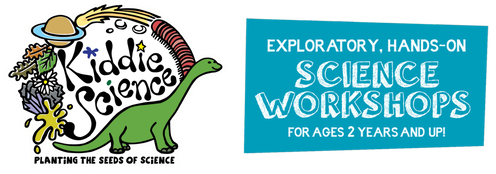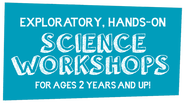Let's face it, many of us dreaded science in school. It was either too hard or not interesting enough, and there was a disconnect with how science fit into our daily lives. Love it hate it, a strong foundation in STEM (science, technology, engineering, and mathematics) is crucial for succeeding in the ever changing modern world.
Below we share some tips on how to help your child love science and establish a meaningful connection with how it fits into their world.
Provide frequent opportunities for science exploration through play
Science is everywhere, which means there's always an opportunity to incorporate science into play time. Give your young scientist a bowl of water and several containers. As they gather and pour the water, discuss differences in capacity (how much water each container holds). Water play is also a great time to explore buoyancy. Using various items, hypothesize which will float or sink and then test it!
Visit a local zoo, aquarium, or nature center
Visiting the zoo or aquarium is a great opportunity to not only observe animals, but make comparisons about their anatomy to ours. A guiding question can be, "why are we not reptiles?" (or fish or birds). By observing other animals, your young scientist can gain a better understanding of where we fit in as mammals.
Care for a plant together
This can be as simple as planting a bean seed and watching it grow. By caring for a plant, your young scientist will begin to understand the needs of living things. This is also a great opportunity to make observations together as the plant grows.
Below we share some tips on how to help your child love science and establish a meaningful connection with how it fits into their world.
Provide frequent opportunities for science exploration through play
Science is everywhere, which means there's always an opportunity to incorporate science into play time. Give your young scientist a bowl of water and several containers. As they gather and pour the water, discuss differences in capacity (how much water each container holds). Water play is also a great time to explore buoyancy. Using various items, hypothesize which will float or sink and then test it!
Visit a local zoo, aquarium, or nature center
Visiting the zoo or aquarium is a great opportunity to not only observe animals, but make comparisons about their anatomy to ours. A guiding question can be, "why are we not reptiles?" (or fish or birds). By observing other animals, your young scientist can gain a better understanding of where we fit in as mammals.
Care for a plant together
This can be as simple as planting a bean seed and watching it grow. By caring for a plant, your young scientist will begin to understand the needs of living things. This is also a great opportunity to make observations together as the plant grows.



